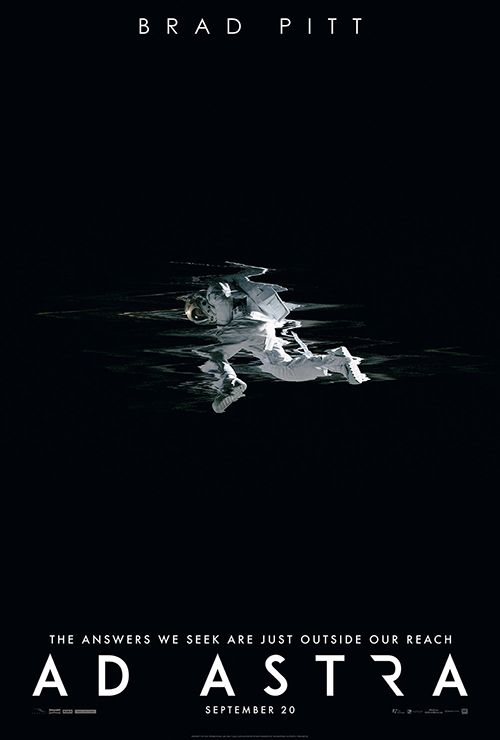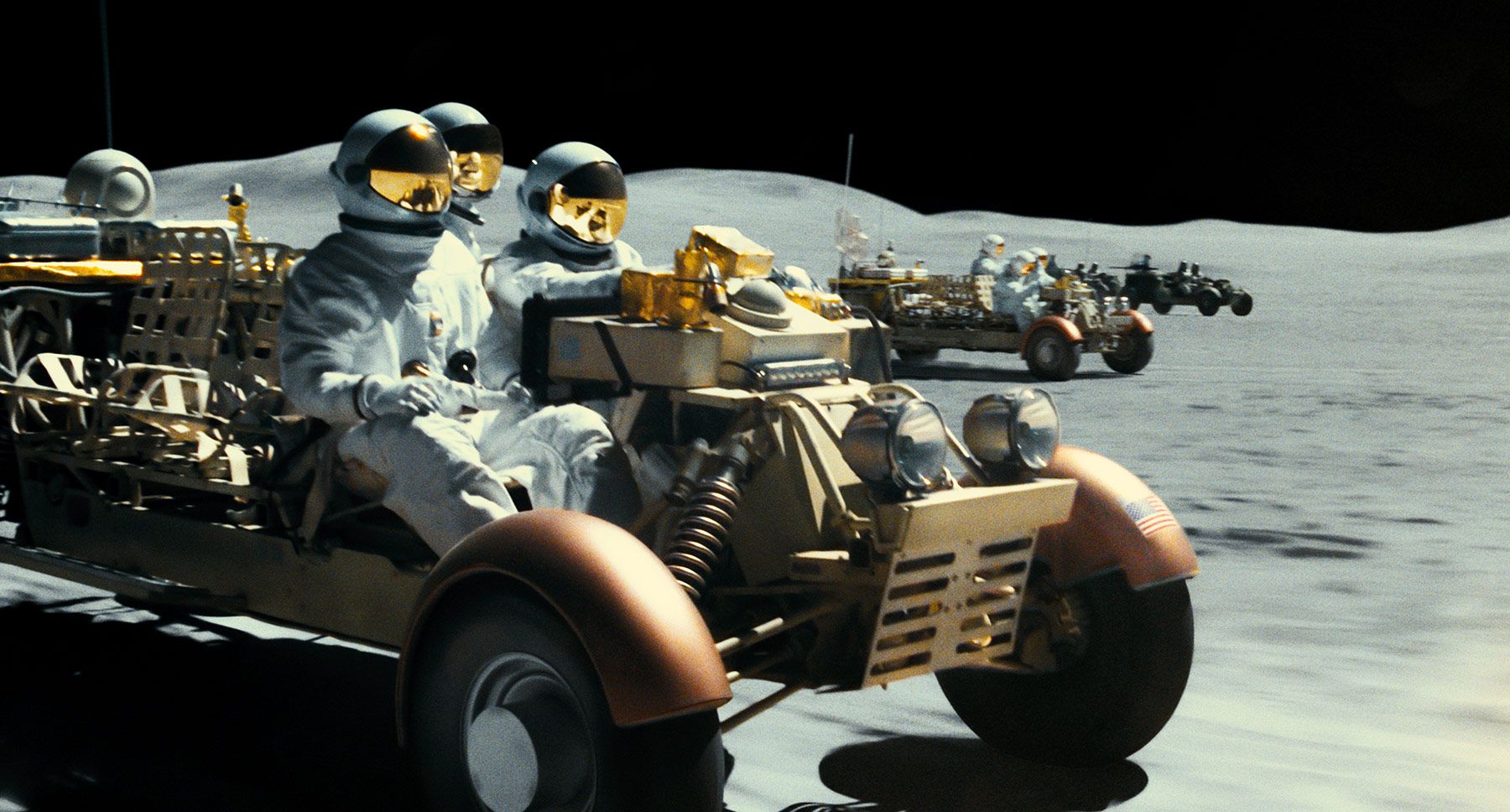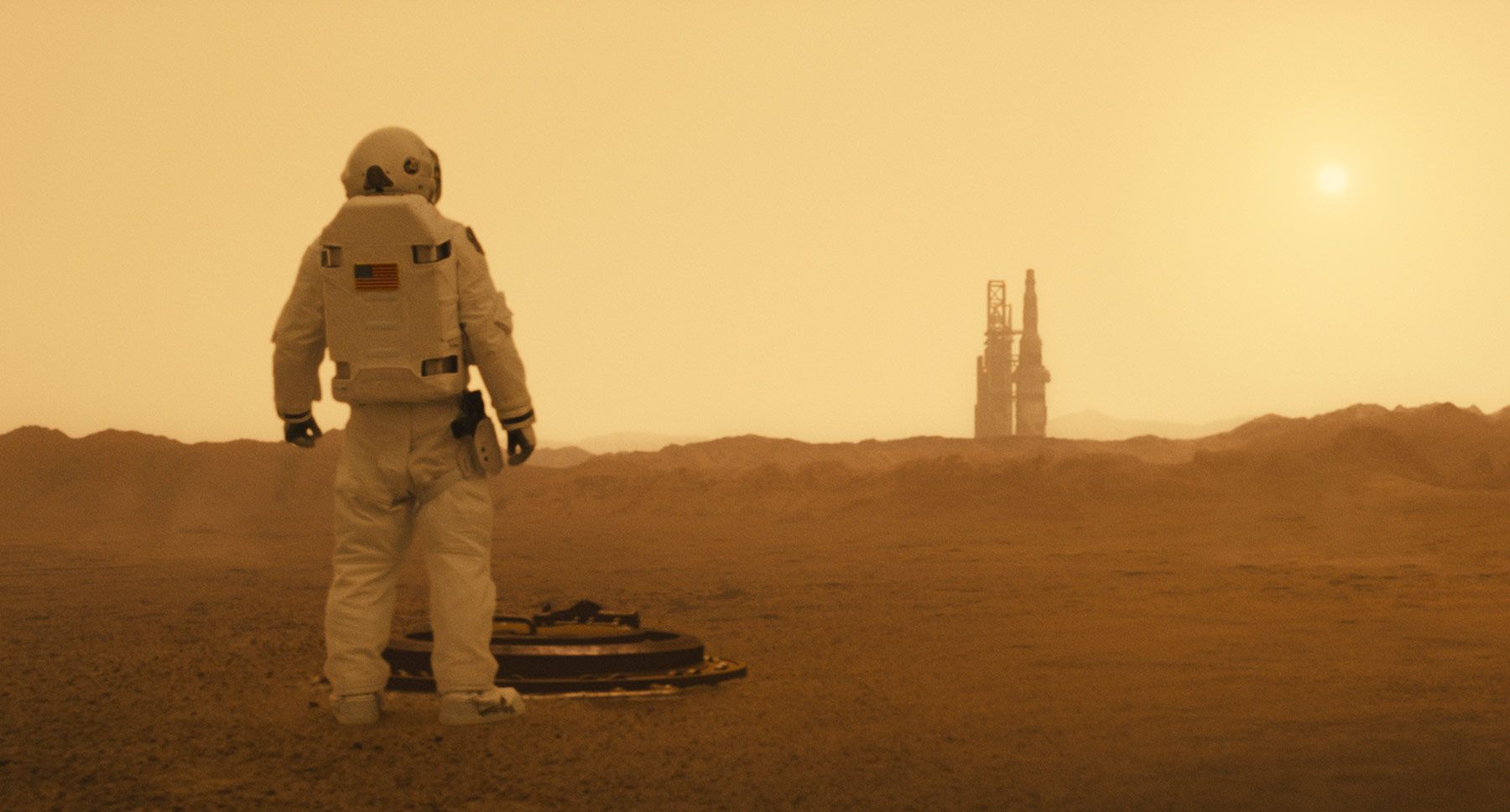Ad Astra (2019)
If we took the time to notice the life all around us, we wouldn’t have time to search the dark places for more life.

Ad Astra: (Latin) “To the stars”
As humans, we spend quite a bit of our time and energy looking for fairies, aliens, and Bigfoot. Always on the lookout and daydreaming about discovering new and exotic forms of life. In the West, "we" were amazed when we “discovered” the elusive Panda in China in the late 1800’s. We’ve always been storytellers too. At the water cooler, around the campfire, or more recently online. Stories about fantastic beasts and where to find them.
The sad and ironic thing about our search? We’ve been looking everywhere we can think: under rocks, inside volcanoes, underneath Loch Ness, and even out amongst the stars. In all that time, we’ve failed to see the life (intelligent or otherwise) right under our proverbial noses. There are people living inside houses on either side of me that I’ve hardly seen, let alone met. As I sit here writing this, there’s a homeless right now, sleeping down by the river, that I’ve seen dozens of times, but know absolutely nothing about. We often miss the things right in front of us. Miss the forest for the trees.
If we took the time to notice the life all around us, we wouldn’t have time to search the dark places for more life.
(Ahoy! Spoilers Ahead!)
In the not too distant future movie setting, humankind has established a permanent presence on the moon. We’ve traveled to the moon to strip it of its resources. Combing the surface with our hungry machines. Gnarled greedy little hands manning the controls of enormous machines taking gaping, hungry bites out of the ground-in-the-night-sky. No doubt a predictable next step in our current favorite pastime: Capitalist Alchemy. Turning precious soil and human suffering into yachts and hairpieces. Into cocaine and breast implants:
“I NEED a bigger boat.”
“I NEED more hair.”
“I NEED more fun RIGHT NOW.”
“I NEED huge tits.”
“I don’t have enough ANYTHING.”
“I don’t have enough EVERYTHING!”
If we took the time to notice the things we already have in our life, we wouldn’t be so thirsty for more.

The moon is still a harsh mistress in this future. Many of the mining areas are disputed territory. International organizations and pirate groups are in a constant state of conflict over resources. The moon is just a new venue for an old game. Big bank takes little bank. Winner takes all. We’ve dragged our primitive squabbles to the moon. Throwing rocks and sticks at each other underneath a magnificent, endless blanket of stars.
If we took the time to notice the beauty above our heads, we wouldn’t have time to claw at each other’s throats.
Our main character, played by Brad Pitt, is Roy McBride, Professional Space Man. Roy's dad (we'll call him Dad McBride), was a Professional Space Man too, focused on finding life out amongst the stars. He was focused on this to the exclusion of everyone and everything else in his life. His wife and child. His fellow crewmates. The entire planet. Dad McBride was so focused on continuing his search for life that he was willing to snuff out the lives of literally every other living thing on his ship and risk the lives of everyone else back on earth in the process:
“God damn it! If I could just get rid of all these other people alive on this ship, I could get back to my REAL work of finding something ALIVE out here!”.
If he had paid more attention to the life on earth, with him on the ship, or in his family, he wouldn’t have needed to search so feverishly for life out there in the cosmos.
An entirely different crew of people aboard a different ship were killed by their own crazy mad scientist experiments. Devoured by ravenous baboons. In space. Two sets of primitive primates, floating around in the stars abusing each other. If the fighting on the moon is brother against brother, then this is cousin against cousin. We’re just stuck in this cycle of space monkeys trying to chew each others faces off because we’re scared and confused.
If they had paid more attention to what they were doing, they wouldn’t have had their faces eaten off.

Roy McBride ultimately learned one final lesson from his father. He learned to let go of his old burdens, his old "baggage" literally and figuratively. At first it was difficult. When you let go of your burdens you can feel like you’re all alone, flailing helplessly in the dark. Our old habits and burdens can be comforting and when they die, they die hard. It was a lesson long in the making for Roy, but he seemed to have "gotten it" in the end. Hero's Journey complete.
If he had paid more attention to the people around him, the people he worked with, and ate with, and slept with, he wouldn’t have felt so isolated and alone. Even when he wasn’t in a space suit.
In the beginning of the movie, he was focused on the "important things" in life: the mission, the objective. In the blurry background of one scene, you can see the less important thing throw her keys on the table as she walks out of the door. She won’t need those keys anymore. She won’t be coming back.
By the end of the movie, his priorities had shifted. He realized that the important thing was PEOPLE. WE are the life in the universe. Family, friends, other loved ones. It’s hard enough to find intelligent life here on earth. We need to cherish it and nurture it whenever we can. We may be the only (semi?) intelligent life in the universe. The government can’t do it for us. Our fathers can’t do it for us. We need to persevere and put in the work to connect with people and solve our own problems.
If we pay more attention to the things in our lives, we might all be surprised how fortunate we are.
5/7 Bananas